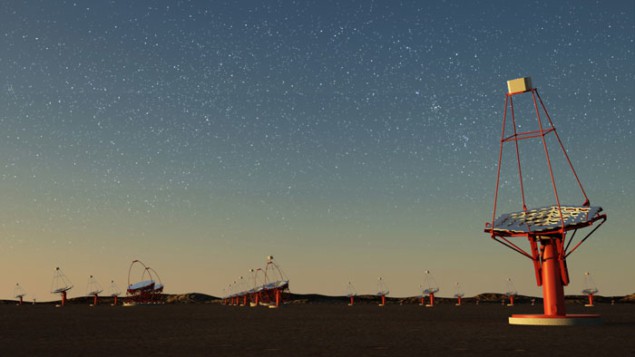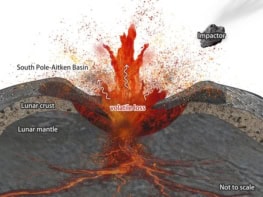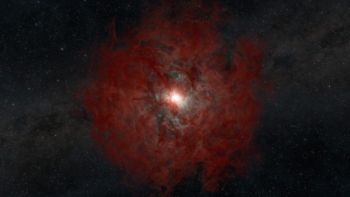
The size of the UK’s astroparticle community – and the breadth of science receiving financial support – is “critically low”, according to a report by the UK Institute of Physics, which publishes Physics World. The report – A Review of UK Astroparticle Physics Research – says that limited funding is hampering the ability of the astroparticle physics community to train people and develop new applications.
The report was written by a five-member panel that was chaired by Alex Murphy, who is professor of nuclear and particle astrophysics at the University of Edinburgh. It says that the UK hosts a community of “world-class” astroparticle physicists that publishes high-quality papers and makes “major contributions” to several key international projects. The report also points out that the international standing of the community is “exceptional”, with many physicists in the UK holding senior positions in such projects.
Leadership roles
Recommendations to further improve astroparticle physics in the UK are also presented, including that the community should establish major leadership roles in one or more international projects “through numerically significant contributions in both personnel and capital”. The report also says the UK must continue its investment in projects such as the LUX-ZEPLIN dark-matter experiment at the Sanford Underground Research Facility in South Dakota, as well as the planned Cherenkov Telescope Array.
As for astrophysical neutrino physics, which is dubbed a “major pursuit” internationally, the report warns that the UK’s efforts are at a “low level” and calls for a more strategic approach to this area. The Science and Technology Facilities Council – the main funder of astroparticle research in the UK – must now examine the structure of its peer-review system to ensure that an interdisciplinary field such as astroparticle physics is properly represented in funding calls, the report says. However, it falls short of asking for a specific astroparticle physics “grants line”, due to the concern that this would result in a drop in funding for the subject.
“The main issue here is that projects have found it difficult to know exactly who their audience for review will be, as they tend to be treated as either particle physics or astronomy,” Murphy told Physics World. He adds that astroparticle physics is experiencing rapid growth internationally, offering “tremendous opportunities” for the UK community.



